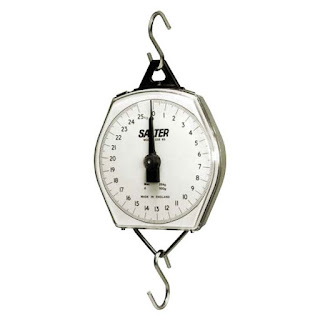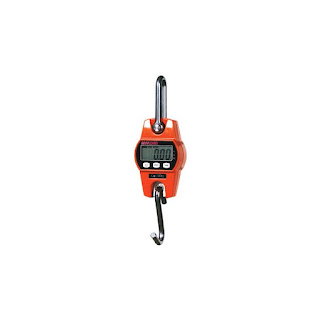Hanging scales are important scales that are used to weigh objects that are not easily placed on a flat surface. They can be used to weigh...
A Guide to Buying Hanging Scales and Crane Scales

A Guide to Buying Hanging Scales and Crane Scales
Hanging scales are important scales that are used to weigh objects that are not easily placed on a flat surface. They can be used to weigh people, livestock, feed, produce, and other objects. The main purpose of using these scales is to get an accurate weight measurement. It is used in medical, commerce, and many other industrial applications.
Crane scales are a type of hanging scale that is used to weigh heavy objects. They are commonly used in industrial and commercial applications. These scales are very accurate and can measure large weights. They are often used to weigh vehicles, machinery, and other large objects.
Hanging scales can be either digital or analog. Analog hanging scales have a dial that displays the weight, while digital hanging scales have a digital display. There are also different types of crane scales, such as floor scales and cargo scales. Floor scales are designed to weigh heavy objects that are placed on the floor, while cargo scales are designed to weigh objects that are suspended from a crane.
Top Benefits:
- Versatile: Can be used for a variety of applications
- Precise: Measurement accuracy to within 1/2 oz.
- Durable: Made with high-quality components for long-lasting use
- Portable: Weighs only 10 lbs. and is easily transported
Different Between Hanging and Crane Scales:
The duty of these scales offers different features for different purposes. Hanging scales are best used for weighing smaller objects whereas crane scales are designed for heavy-duty use and can weigh much larger items.
Another different thing is that crane scales have a remote display that can be used to show the weight from a distance, whereas most hanging scales do not have this feature.
Factors you should consider before buying either type of scale
When choosing a hanging or crane scale, you need to consider the following factors:
1. Capacity: The capacity is the maximum weight that the scale can handle. Make sure to choose a scale with a capacity that meets your needs. maximum capacity starts from 50 kg to 5000 kg. The item weight that you need to weigh will help you determine the capacity that you need.
2. Accuracy: The accuracy is the margin of error for the weight measurement. Choose a scale with the highest accuracy that you can afford. Hanging scales can have an accuracy of +/- 0.5% to +/- 2%, while crane scales can have an accuracy of +/- 0.1% to +/- 1%.
3. Readability: Readability is the smallest increment that the scale can measure. Higher readability means that the scale is more precise. Hanging scales typically have readability of 0.1 kg to 1 kg, while crane scales have readability of 0.01 kg to 0.1 kg.
4. Resolution: Resolution is the smallest change in weight that the scale can detect. Higher resolution means that the scale is more sensitive. Hanging scales typically have a resolution of 0.1 kg to 1 kg, while crane scales have a resolution of 0.01 kg to 0.1 kg.
5. Safety: Safety is an important consideration when choosing a scale. Make sure that the scale you choose has safety features such as overload protection.
How to use the hanging scale and crane scale?
In commercial and industrial applications, crane scales are used to weigh heavy items or objects such as vehicles, machinery, and containers. The process to use it is very similar to the hanging scale.
In the medical industry, hanging scales are used to weigh patients, and they are also used in food service to weigh produce and other food items. Hanging scales can be used in many different ways, but they all have one common goal: to provide an accurate weight measurement. There are a few things to keep in mind when using a hanging scale:
1. Make sure that the scale is level. This will ensure that the weight measurement is accurate.
2. Make sure that the object you are weighing is centered on the scale. This will also help to ensure accuracy.
3. Make sure that you are using the correct units of measurement. Most scales will measure in either pounds or kilograms.
4. Make sure that the scale is calibrated properly. This can usually be done by following the instructions in the user manual.
5. Make sure that you are not overloading the scale. This could damage the scale or cause an inaccurate reading.
Conclusion:
Both hanging and crane scales have their benefits and drawbacks. It is important to consider what you will be using the scale for before making a purchase. If you are still unsure which type of scale would be best for your needs, you can visit an online weighing store to get product information with the different prices. At Able Scale, you can find the different varieties of scales for weighing in Australia.
Blog
Labels
- - Sam4s
- able cale
- able scale
- able scales
- baby scale
- Basic Cash Register
- Bench Scales
- Cash register or Pos system
- Cash Registers
- counting scales
- crane scale for sale
- Crane Scales
- Digital scales
- electronic scales
- hanging scales
- Luggage Scale
- Luggage weighing Scale
- medical scales
- Mobile Cash Register
- Ohaus Portable Luggage Scale
- personal scales
- platform scale in Australia
- point of sale system
- Portable baby scale
- pos machine
- POS machines
- POS Scale
- POS system
- pos systems
- Sam4s
- scales
- Scales for luggage
- scales for weighing
- Seca Electronic Baby Scale
- shipping scale for sale
- System Cash Register
- Thermal Cash Register Single Station
- toddler scale
- toddler scale in Australia
- Weighing scale
- weighing scales
- weighing scales in Australia


0 Reviews: